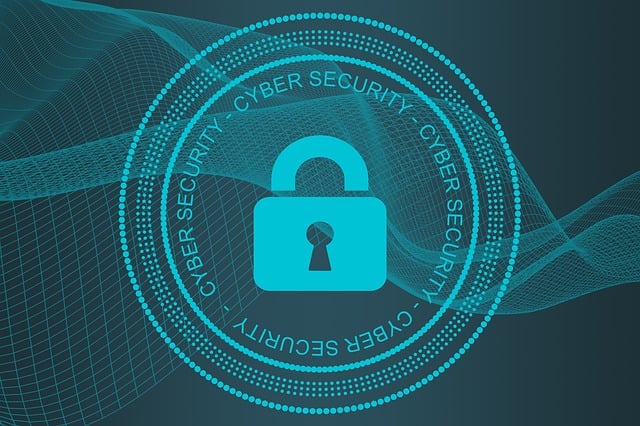
Category: Balancing Privacy and Social Life for a Comfortable Evironment
Balancing Privacy and Social Life for a Comfortable Environment
Introduction
In an increasingly connected world, the concept of balancing personal privacy and social engagement has become a critical aspect of creating comfortable and sustainable environments. This article explores the intricate relationship between ensuring individual privacy and fostering a vibrant social life, delving into various factors that contribute to shaping comfortable living spaces. We will navigate through historical perspectives, global influences, economic implications, technological advancements, policy frameworks, and real-world case studies to gain a comprehensive understanding of this multifaceted topic. By the end, readers will appreciate the importance of striking a harmonious balance between privacy and social interaction in creating environments that truly enhance our well-being.
Understanding Balancing Privacy and Social Life for a Comfortable Environment
Definition: Balancing Privacy and Social Life for a Comfortable Environment refers to the strategic integration of individual privacy needs with the desire for social connection, interaction, and community engagement within physical or virtual spaces. It involves designing environments that cater to both personal retreats and social gatherings, ensuring that individuals can thrive in solitude while also fostering meaningful connections with others.
Core Components:
-
Privacy: Respecting an individual’s right to personal space, confidentiality, and control over their information. This includes physical privacy (e.g., private homes, quiet spaces) and digital privacy (e.g., secure data protection, controlled online sharing).
-
Social Interaction: Encouraging social connections, community building, and collaborative activities that enhance human relationships and overall well-being. This can manifest in various forms, such as neighborhood gatherings, public events, or virtual communities.
-
Environment Design: Creating physical spaces (indoor and outdoor) that accommodate both private retreats and social areas, promoting flexibility and adaptability to cater to diverse needs.
Historical Context: The concept of balancing privacy and social life has evolved over time, influenced by societal changes, technological advancements, and shifting cultural norms. Historically, many early societies emphasized communal living and shared spaces, while later urban developments prioritized private homes with secured boundaries. The digital age has introduced new dimensions to this balance, as individuals now navigate a complex web of online privacy and social networking.
Significance: Striking the right balance is crucial for several reasons:
-
Well-being: Comfortable environments support mental health by providing spaces for relaxation, reflection, and restoration, alongside opportunities for social interaction to foster belonging and combat loneliness.
-
Community Cohesion: Encouraging social connections strengthens communities, promotes trust, and facilitates collaboration, leading to more vibrant and resilient neighborhoods.
-
Individual Autonomy: Respecting privacy empowers individuals to set boundaries, maintain control over their personal lives, and engage in social activities on their terms.
Global Impact and Trends
The concept of balancing privacy and social life has gained global traction, with varying interpretations and approaches across different regions:
| Region | Key Trends/Influences | Notable Examples |
|---|---|---|
| North America | Emphasis on individualism and personal space coexists with a strong culture of neighborhood engagement. | Urban design in North American cities often includes dedicated community spaces and mixed-use developments that blend private residencies with vibrant public areas. |
| Europe | A rich history of collective living, coupled with recent privacy concerns related to data protection laws, has led to a nuanced approach. | European countries have stringent data privacy regulations (e.g., GDPR), reflecting a commitment to individual privacy rights while also fostering social interactions through community events and public spaces. |
| Asia | High population density and cultural values promoting communal living create unique challenges and opportunities for balance. | In Asian metropolises, vertical communities with shared amenities cater to busy residents, while also providing opportunities for social connections in densely populated areas. |
| Middle East | Rapid urbanization and a growing young population drive the need for comfortable, privacy-focused homes within accessible community settings. | Modern developments in Dubai, for instance, offer private villas with secure boundaries yet are connected to vibrant entertainment districts, reflecting the region’s balance between personal space and social engagement. |
Economic Considerations
The interplay between privacy and social life has significant economic implications:
-
Real Estate Market: Developers often cater to this demand by offering a range of housing options, from private villas to shared living spaces, influencing urban planning and property values.
-
Community Engagement: Comfortable environments with balanced privacy and social elements can enhance community cohesion, reducing social isolation and associated costs related to mental health issues.
-
Tourism: Destinations that successfully integrate privacy and social experiences appeal to diverse traveler preferences, contributing to local economies through increased tourism revenue.
Technological Advancements
Technology plays a pivotal role in shaping the balance between privacy and social life:
-
Smart Homes: Integrating automation and connectivity allows individuals to customize their living spaces, enhancing comfort and privacy. However, smart home devices also collect data, raising concerns about digital privacy.
-
Social Media and Online Communities: These platforms facilitate global connections but can lead to increased exposure and potential privacy breaches. Balancing online social interactions with offline connections is a growing challenge.
-
Augmented Reality (AR) and Virtual Reality (VR): Technologies like AR/VR offer immersive experiences, potentially transforming public spaces into interactive social hubs while also providing private virtual retreats.
Policy and Regulation
Governments worldwide have recognized the importance of addressing privacy concerns while fostering social engagement:
-
Data Protection Laws: Regulations such as GDPR in Europe, CCPA in California, and similar laws globally aim to protect individual data privacy rights, influencing how businesses and individuals manage personal information.
-
Urban Planning Guidelines: Many cities have implemented guidelines that promote mixed-use developments, open spaces, and walkable neighborhoods, encouraging social interaction while also providing private areas.
-
Cybersecurity Measures: As technology advances, so do cyber threats. Governments are enacting policies to enhance cybersecurity, ensuring digital privacy and security for citizens engaging in online social activities.
Challenges and Criticisms
Despite its benefits, balancing privacy and social life faces several challenges:
-
Privacy vs. Surveillance Culture: The use of technology for public safety versus potential invasion of privacy raises concerns, especially with the proliferation of surveillance cameras and smart devices.
-
Digital Divide: Access to technology and online platforms varies globally, creating a divide that can impact individuals’ ability to engage socially and access private services.
-
Over-commercialization: The commercialized aspect of social life, particularly in urban spaces, may lead to homogenization and the loss of authentic community connections.
Solutions and Strategies:
-
Education and Awareness: Promoting digital literacy and privacy awareness empowers individuals to make informed choices regarding their online presence and data sharing.
-
Collaborative Policy Making: Engaging stakeholders, including technology companies, civil society, and policymakers, is crucial for developing effective regulations that address both privacy and social engagement.
-
Personalized Technologies: Developing technologies that respect user privacy preferences and provide customizable settings can enhance the user experience while ensuring individual control.
Case Studies
1. Green Spaces in Urban Environments (London, UK)
London’s extensive network of parks and green spaces exemplifies successful urban planning that balances privacy and social life. Hyde Park, for instance, offers secluded areas for quiet reflection alongside bustling event spaces and public gatherings. This mix caters to diverse needs, providing individuals with private retreats while also fostering a vibrant social scene. The city’s commitment to maintaining and expanding these green spaces underscores the importance of natural environments in creating comfortable living spaces.
2. Shared Economy Models (Airbnb, Uber)
The rise of shared economy platforms like Airbnb and Uber has transformed the way people access housing and transportation, offering both privacy and social interaction opportunities. Airbnb provides private accommodation while connecting travelers with local hosts, fostering cultural exchange. Similarly, Uber connects passengers with drivers for personalized travel, allowing for social engagement (if desired) during journeys. These models demonstrate how technology can facilitate comfortable, balanced experiences at scale.
3. Smart Cities and Digital Inclusion (Singapore)
Singapore’s approach to smart city development emphasizes digital inclusion and the creation of connected communities. The government has implemented various initiatives to ensure that all citizens have access to technology and online services. This includes providing public Wi-Fi, promoting digital literacy programs, and developing inclusive digital platforms for social engagement. By addressing the digital divide, Singapore fosters a more comfortable and connected society, ensuring privacy is not compromised.
Future Prospects
The future of balancing privacy and social life in comfortable environments holds promising possibilities:
-
Emerging Technologies: Advancements in AI, IoT, and AR/VR will continue to shape urban spaces, offering personalized experiences while addressing privacy concerns through secure data management.
-
Sustainable Communities: There is a growing emphasis on creating sustainable, resilient communities that prioritize both individual well-being and social cohesion, aligning with the concept of balanced environments.
-
Digital Privacy Regulations: As technology evolves, so will privacy regulations. Future laws may focus on granular control over data, context-aware consent, and enhanced transparency to empower individuals.
-
Virtual and Augmented Social Spaces: The integration of AR/VR technologies could give rise to immersive social hubs, enabling global connections while providing unique, personalized experiences.
Conclusion
Balancing privacy and social life for a comfortable environment is a dynamic concept that has evolved with societal changes and technological advancements. It requires careful consideration of individual rights, community needs, and economic factors. By understanding the historical context, global influences, and emerging trends, we can design spaces and implement policies that enhance well-being, foster community, and navigate the privacy-social dynamic in today’s digital age.
The case studies presented highlight successful applications, while the future prospects offer a glimpse into potential innovations. As the world continues to evolve, striking a harmonious balance will remain crucial for creating environments that truly nurture human connections and individual comfort.
FAQ Section
Q: How does technology impact our ability to balance privacy and social life?
A: Technology offers incredible opportunities for connection but also presents challenges. While it enables global communication, it can also lead to increased data sharing and potential privacy breaches. Balancing use of technology involves practicing digital hygiene, understanding data permissions, and setting boundaries for online interactions.
Q: What role do government policies play in creating comfortable environments?
A: Governments influence the balance through regulations like data protection laws, urban planning guidelines, and cybersecurity measures. Collaborative policy making that includes diverse stakeholders is essential to developing effective frameworks that respect privacy and promote social engagement.
Q: How can individuals take control of their privacy in a public space?
A: Individuals can exercise control by being mindful of personal information sharing, using privacy settings on devices, and choosing engaging in social interactions on their terms. Awareness of one’s digital footprint and the potential implications is key to maintaining privacy in public spaces.
Q: What are some design elements that contribute to comfortable environments?
A: Comfortable environments often feature flexible design elements, such as adaptable living spaces, well-designed common areas, and access to natural elements like green spaces. Incorporating private retreats alongside social hubs creates a balanced atmosphere.
Q: Can shared economy models enhance social connections?
A: Yes, platforms like Airbnb and Uber facilitate interactions between users, fostering cultural exchange and social engagement. These models demonstrate how technology can bridge privacy and social life, offering personalized experiences while connecting people.









